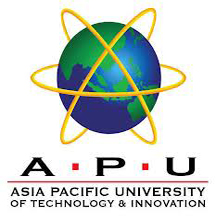
This programme is specifically designed to provide:
What you will study
Statistical Investigation module forms the basis for later statistics options. Probability Models, Calculus and Statistical Inference are introductory level courses designed to prepare students to use Mathematics & Statistics in other contexts.
Financial Accounting skills and the core principles underlying financial theory will be introduced in this level which will be enhanced in the higher level.
Business Law, Marketing and Economics will give students a better understanding of the Business Environment.
Business & Communication Skills will further equip students with the communication skills required to cope with academic demands of degree level study in all disciplines.
In addition to the above, all students are also required to successfully complete General Studies modules as stipulated by the Malaysian Qualification Agency, as well as fulfill credit requirements for Co-Curricular Activities.
This level looks at application of statistics, covering techniques for the analysis of results from experiments and surveys where students will be doing modules like Time Series & Forecasting, Regression Analysis, Multivariate Analysis and Business Research Methods as well as some of the most standard basic operation research techniques such as Linear Programming, Queuing System & Simulation.
Modules such as Financial Mathematics, Investment Management & Capital Markets, will be taught to give a closer look at the financial aspect of operational issues.
Quality Control and Management Information System will also be taught at this level.
Students will also use their co curricular activities (social, sport, cultural etc.) as evidence of the development of their personal skills, which are highly regarded by employers. They will collect this information in a portfolio and submit together with an essay showing how these experiences have helped to develop your employability skills such as social, interpersonal, planning, communications and many others.
After the completion of Level 2 students will undertake a short Internship. This will enable them to experience the culture and ethos of a working environment and formal employment. Students will benefit from seeing how the skills and knowledge acquired are applied in a practical setting and enhance their employment prospects upon graduation.
Further insights into techniques of production and operation management will be taught in modules like Project Management and Games & Decision Theory.
Risk Theory together with Management Decision Models which involve financial and statistical software packages will be offered at this level as well. We place particular emphasis on interpreting results and the use of a variety of computer packages, rather than concentrating on the theoretical proofs of statistical ideas.
Introduction to Stochastic Process will introduce students to a range of stochastic
processes which are used as modelling tools in diverse fields of applications.
The Management aspect of the program which gives a broad understanding of the business world will be taught in the modules like Managing People & Performance, Management Problem Solving, Strategic Management and The Changing Face of Management.
Students will also carry out an individually researched project and their own investigations into areas related to most recent development in the field of Management Science.
Operating in a wider range of industries, Management Science graduates will possess the skills and knowledge to perform as Management Analysts, Market And Survey Researchers, Mathematicians, Statistician Operations Research Analysts and Operation Managers.
Source: Asia Pacific University